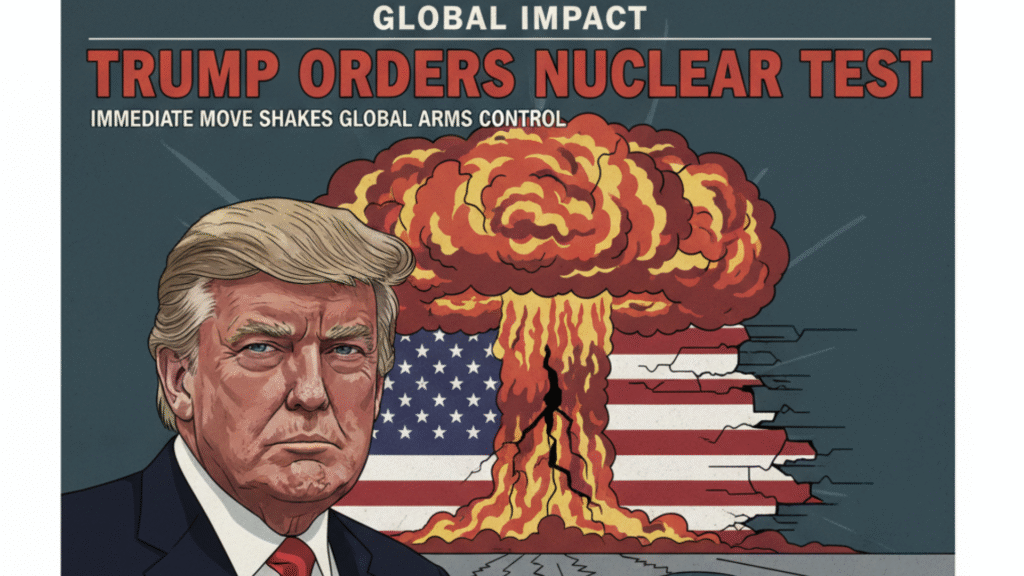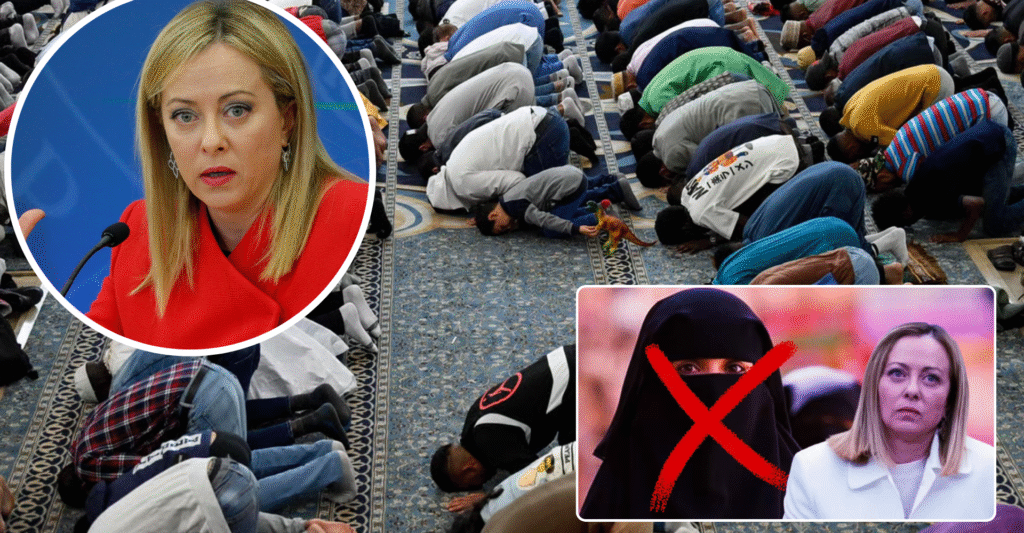
Quick highlights
- President Donald Trump said he instructed the Pentagon to “immediately” resume nuclear-weapons testing, ending a 33-year U.S. moratorium.
- Announcement came on social media just before a high-profile meeting with China’s Xi Jinping in Busan, South Korea.
- Officials did not specify whether tests would be explosive (underground detonations) or non-explosive flight/sub-critical trials; practical implementation could take years.
- Arms-control experts warn the move could weaken non-proliferation norms and spark a new arms race.
What happened
On October 29–30, 2025, Mr Trump posted on social media that he had ordered the Pentagon to “start testing our Nuclear Weapons on an equal basis” with other powers, and that the process would begin “immediately.” The statement reversed decades of U.S. practice; the last U.S. explosive nuclear test took place in 1992.
Where and when
The announcement was made en route to and just before Trump’s meeting with Chinese President Xi Jinping in Busan, South Korea, a timing observers say signals a message to Beijing as well as Moscow. There has been no public confirmation of a selected test site or schedule.
Why the administration says it’s needed
Trump framed the decision as a response to advances by rivals, pointing to recent Russian tests of novel nuclear-capable systems and rapid expansion of China’s arsenal, arguing the U.S. must not be outpaced. His post emphasized parity with other countries as the rationale.
How tests might be carried out
The U.S. has long relied on simulation, subcritical experiments, and stockpile stewardship rather than explosive tests. Resuming live explosive tests would require physical preparations (weapon design, test-site readiness, regulatory approvals) and likely take years; the Department of Energy, not the Pentagon, traditionally runs nuclear detonations, adding administrative complexity. The president’s brief directive did not clarify method, yields, or timeline.
Global and technical implications (short)
- Arms-control impact: A U.S. return to explosive testing would seriously undercut decades of non-proliferation norms (including the political weight of the Comprehensive Nuclear-Test-Ban Treaty) and could prompt other states to follow.
- Risk of escalation: Experts warn the announcement could accelerate an arms race and complicate diplomacy with Russia, China, and U.S. allies.
Mr Trump’s order is a major policy shift that is currently more of a political signal than an operational plan: it sends a strong message about U.S. resolve, but the practical, legal, and technical steps needed to carry out explosive nuclear tests are substantial, and the international fallout, diplomatic and normative, will be immediate and significant.
Stay connected with Unwires.com for more geopolitics, bollywood stories, guides, and inspiration. After all, every great journey begins with a spark — and Unwires is that spark. ⚡


